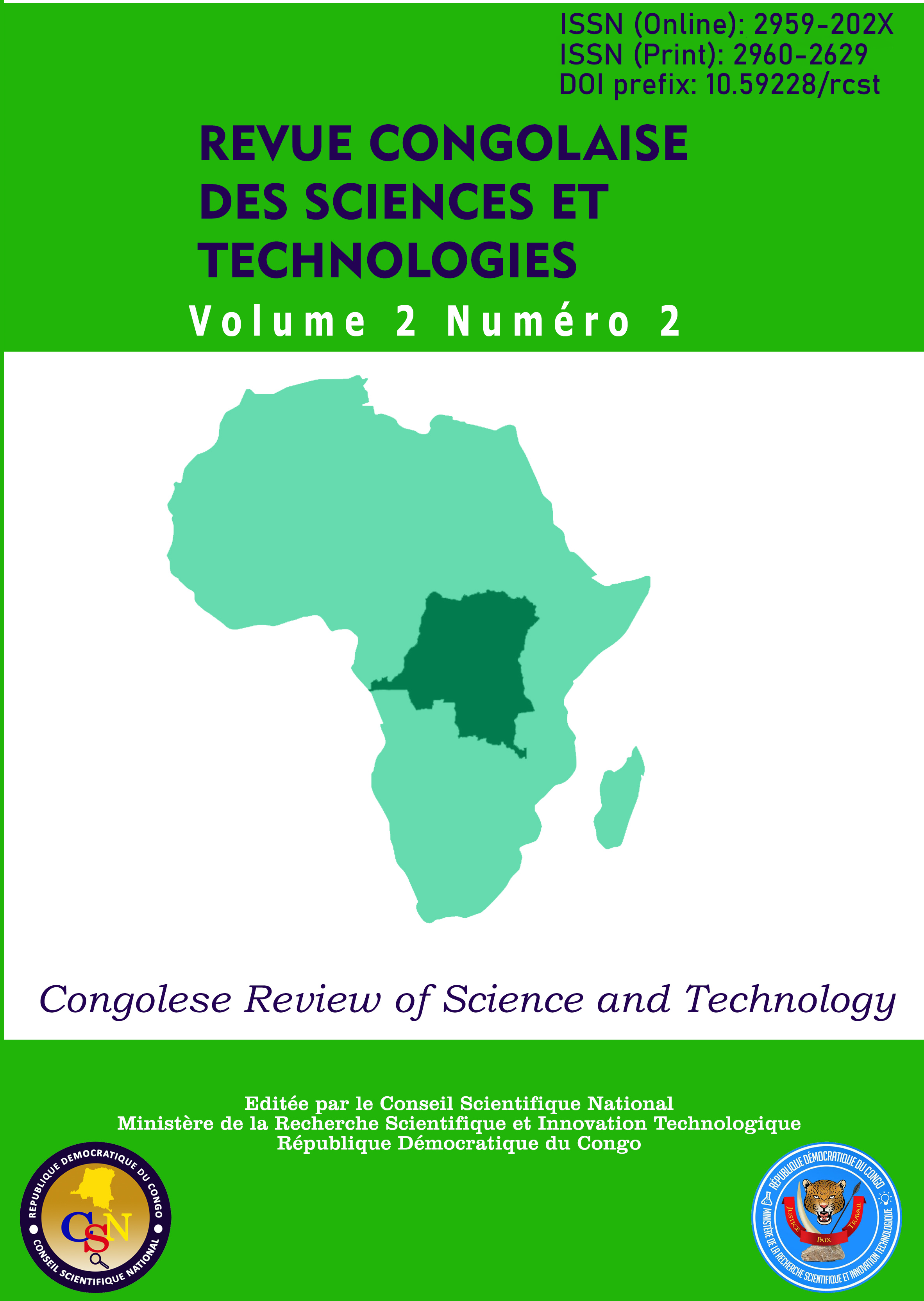The complexity of the war at eastern D.R. Congo: analysis on the causes, consequences and adapted solutions
Main Article Content
Abstract
This work does not set in motion magical solutions but the objective is to make scientific analyses on the strategies that can
enlighten and give the right understanding of the situation in the East, in order to deduce thoughtful actions to put an end to
this tragedy that has lasted too long and if not stopped, risks to set the whole country ablaze and threaten for sure, the regional
and international security. It is also necessary to question the political leadership that is supposed to see clearly the security of
the population in every inch of the national territory. Women are raped, men and children are killed and molested. This war
brings the development of the Drcongo to its knees. Experience has shown that there is no economic growth in a conflict
environment. The question is, why does this misadventure in the East continue? And specifically, what are the solutions to
end this war drastically? it is to be noted that, overall, it all depends on how the leaders handle the issue of this infernal cycle
of violence. And specifically, the insufficiency or lack of quality political leadership capable of silencing these weapons. The
expected outcome of these papers is to provide solutions that can help the Drcongo turn the page on this war and move
relentlessly down the path of developing the Drcongo in general and the East in particular. The method of the immediate
history constitutes a means that brings this analysis to the results since it orients the study in front of the facts with a
diachronic and synchronic approach.
Article Details

This work is licensed under a Creative Commons Attribution-NonCommercial-ShareAlike 4.0 International License.
References
Bagenda, P. (2003). Le Congo malade de ses
hommes. Bruxelles, éd. Luc pire. Consulté le
/12/2022 sur
Benegas, R. (1995). Uganda un Pays en mutation au
Cœur d’une zone de fracture. Paris, L’étude de
centre de recherches internationales, fondation
nationale des sciences politiques. Consulté le
/01/2023 sur https://hal-sciencespo.archivesouvertes.fr/hal-01010086/document,
http://sciencespo.fr/ceri/fr/content/ouganda-unpays-en-mutation-au-coeur-dune-zone-defractures
Crisis Group. (2013). Comprendre les conflits dans
l’Est du Congo : la plaine de la Ruzizi, rapport
Afrique n°206 du 23 Juillet 2013. Consulté le
/12/2022 sur
https://www.refworld.org/pdfid/51ef7e294.pdf
Cuvelier, J. & Marysse, S. (2004). Les enjeux
économiques des conflits en Ituri, in L’Afrique
des grands lacs : annuaire 2003-2004. Paris,
L’harmattan. Consulté le 14/02/2023 sur
https://biblio.ugent.be/publication/1863604
Dupuis, S. (2022). Réflexion sur le rapport duclert.
Consulté le 10/04/2023 sur
https://francegenocidetutsi.org/JeanJauresRapp
ortDuclert.html.frhttps://www.agoravox.fr/tribu
ne-libre/article/rwanda-6-avril-1994-assassinatd-239658
Emizet, K. (2015). Guerres civiles dans RD Congo
de 1960 à 2010. Paris, L’harmattan. Consulté le
/12/2022 sur
https://www.editionsharmattan.fr/catalogue/cou
v/aplat/9782343021980.pdf
Guichaoua, A. & Degni, R. (2010). Rwanda : De la
guerre au génocide : les politiques criminelles
au Rwanda 1990-1994. Paris, éd. La
découverte. Consulté, le 06 /07/2022 sur
https://www.editionsladecouverte.fr/rwanda___
de_la_guerre_au_genocide-9782707153708
Kadibwe, R. (2009). La guerre des Six jours à
Kisangani, leçons géopolitiques et
géostratégiques. Paris, L’harmattan.
Kapend, E. (2022). Occupation de la partie Est de la
R.D. Congo par les groups armées [Carte].
Inédit.
Karl, H. (1986). De la géographique. Paris, éd.
Fayard. Consulté le 12/12/2022 sur
https://www.amazon.fr/g%C3%A9opolitiqueKarl-Haushofer/dp/2213017328
Mukulumanya, Z. (2022). La guerre de l’Est :
enjeux, vérités oubliées et perspectives de paix.
Paris, L’harmattan.
Muzalia, J. (2015). Analyse du conflit à l’Est de la Rd
Congo par une approche dite issue de la
Diplomatie onusienne de droit de l’homme.
Bruxelles, éd. Charles Léopold Mayer.
Nevyl, K. (sd). La RDC et son histoire, de l’antiquité
à nos jours. Kinshasa, Ebri-collection.
Poutier, R. (2000). Guerre et Géographie. Du conflit
des grands lacs à l’embrasement de l’Afrique
centrale. Paris, éd. de la Sorbonne. Consulté le
/08/2022 sur
https://books.openedition.org/psorbonne/31090
?lang=frReychler, L. (1997). Les crises et leurs fondements,
la prévention des conflits violents en Afrique :
analyse des crises et pistes pour une
prévention. Bruxelles, Grip.

